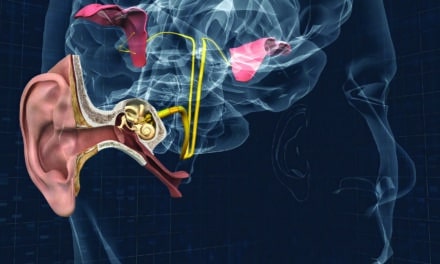NHS England, which leads the National Health Service (NHS) and sets the priorities and direction of the NHS regarding improvements in healthcare, has announced the launch of the “Commissioning Services for People with Hearing Loss: A Framework for Clinical Commissioning Groups.” This long-awaited Framework is the first major deliverable from the Action Plan on Hearing Loss, published jointly by the Department of Health and NHS England in 2015.
“The Framework represents a dedicated partnership with stakeholders and sets out a series of recommendations on how services for people living with hearing loss can be improved,” said Sue Hill, OBE, PhD, chief scientific officer for England. “I’d like to thank all the patients, professionals and organizations who have given their time, experience and knowledge to make this document so credible and compelling.”
According to NHCA Chairman Mark Georgevic, the launch of the Framework is a major breakthrough for patients and the hearing health sector because, despite several previous attempts since 2000 to improve hearing care, most commissioners in England are not yet getting the best deal for their local population or meeting needs in a sustainable way. Georgevic noted that opportunities have always been there, but the Framework brings the evidence together in one easily accessible format to support commissioners.
The Framework is seen by NHCA Chief Executive David Hewlett as a significant step forward in equality for people with hearing loss, and for Clinical Commissioning Groups (CCGs), which plan and commission healthcare services for their local areas. Hewlett notes that CCGs now have the tools necessary to meet increasing national demand. “The majority of adults with hearing loss still present far too late without knowing what interventions, care and support are available,” said Hewlett. “This Framework enables us to change now, within available resources, to meet growing needs and patient wishes.”
“Sue Hill and the NHS England team have produced a Framework that can deliver the Five Year Forward View in this [health] sector,” said NCHA Director of Policy and Strategy Harjit Sandhu. “As more evidence is established, we will be able to update the Framework or issue supplementary guidance. Well over 50% of CCGs can improve quality, access and value for money, and this Framework provides them with the tools to do just that.”
Additional information about NHS England’s “Commissioning Services for People with Hearing Loss: A Framework for Clinical Commissioning Groups” can be found at the NHS Improvement website, the website of NHS commissioners and members of the Hearing Loss and Deafness Alliance.
As covered by The Hearing Review and other media, similar strides toward improving hearing healthcare have been made in the US, with recent reports and recommendations on hearing healthcare released by the National Academies of Sciences (NAS, formerly the Institute of Medicine/IOM), and the President’s Council of Advisors on Science and Technology (PCAST).
Source: NHS England; NCHA
Image credits: NHCA; NHS England










I wear NHS aids and wish I’d realised sooner that NHS (in Worcester at least) provide pairs of modern colourful hearing aids.
Improvements, 1) service needs to be advertised at GPs end.
2) services need to use smaller hospitals and health centres. County hospital site and parking is really busy, stressful as a fully able 48 year old. Very off putting for many older, less mobile patients
3) Gloucester- Do not ask older, first time hearing aid users, if they want one aid or two? They don’t know! If they need two, they need two. It’s just back door penny pinching